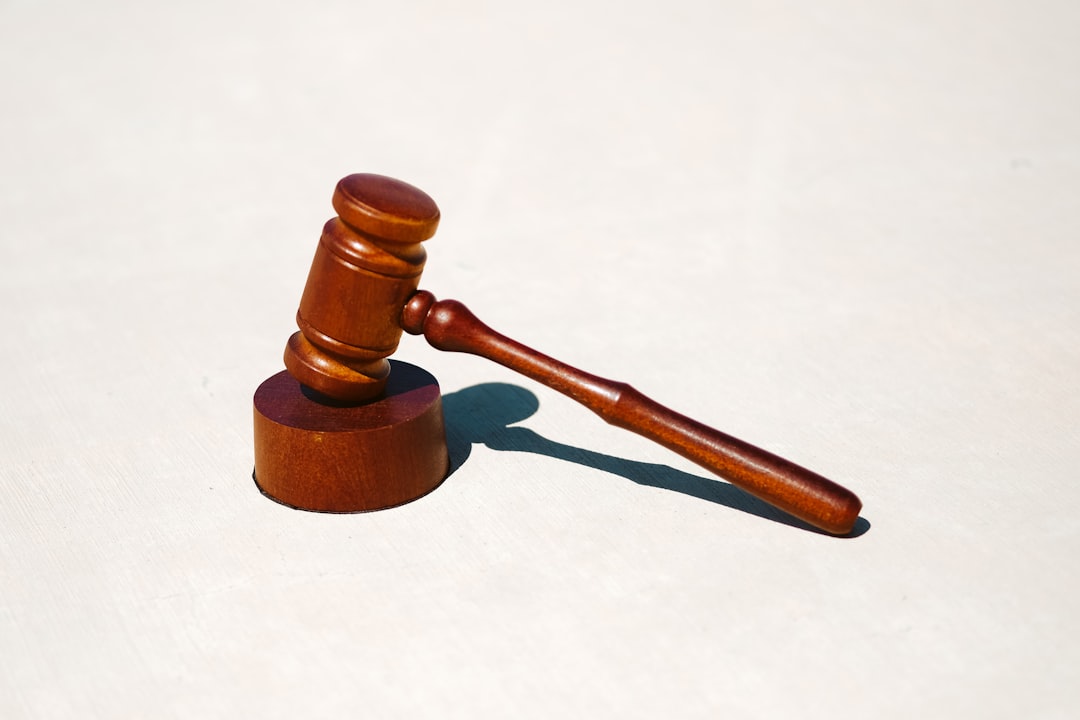In Florida, GPS tracking is a complex legal tool for rape attorneys in sexual assault cases. It offers real-time monitoring and evidence collection but raises privacy concerns. Balancing evidence with rights, attorneys navigate data handling, court procedures, and Fourth Amendment considerations. GPS data's admissibility as evidence requires careful evaluation of accuracy and integrity. Successful prosecutions highlight its benefits while advocates stress the need for individual privacy protection under Florida law.
“In Florida, the use of GPS tracking technology has emerged as a controversial yet potent tool in sexual assault cases. This article explores the intricate legal landscape surrounding GPS monitoring, its implications for privacy, and its admissibility as evidence. From the perspective of a rape attorney in Florida, we delve into ethical considerations when employing this technology. Through case studies, we examine both the achievements and challenges associated with GPS tracking, shedding light on its role in securing justice.”
Legal Framework for GPS Tracking in Florida

In Florida, the use of GPS tracking in sexual assault cases is governed by a robust legal framework designed to protect both victims and ensure due process. A rape attorney in Florida may advocate for the use of GPS trackers as a means of providing security and accountability for defendants under certain circumstances. The state has specific laws enabling real-time monitoring of individuals accused of sexual offenses, particularly those on bail or parole. These measures are implemented through the Department of Corrections (DOC) and can include electronic monitoring devices attached to the ankles of defendants.
The legal implications extend beyond the tracking itself; Florida law also dictates how this data is handled and used in court proceedings. GPS information must adhere to strict privacy standards, ensuring that victims’ safety is prioritized without infringing upon the rights of the accused. This delicate balance requires careful navigation by both legal professionals and law enforcement agencies, emphasizing the importance of a well-versed rape attorney in Florida to navigate these complex legal waters.
Privacy Concerns and Sexual Assault Cases

Privacy concerns are a significant aspect of GPS tracking in sexual assault cases, especially in Florida, where the role of technology has sparked debates. The use of Global Positioning System (GPS) devices to track suspects or victims may raise serious privacy issues for both parties involved. This is particularly true when considering the sensitive nature of sexual assault investigations.
For rape attorneys in Florida, navigating these privacy concerns is crucial. They must balance the need for evidence and tracking with the right to privacy protected by law. Victims, in particular, face a delicate situation where their personal data and movements are monitored, which can lead to potential re-traumatization. As technology advances, it becomes essential for legal professionals to advocate for robust privacy protections, ensuring that GPS tracking is conducted ethically and with respect for the rights of all individuals involved in sexual assault cases.
Admissibility of GPS Data in Court

In Florida, the admissibility of GPS data as evidence in sexual assault cases is a complex legal issue that has garnered significant attention. GPS tracking technology offers potent tools for rape attorneys and prosecutors alike, providing real-time location data that can corroborate or refute an individual’s alibi. However, the defense may challenge the accuracy, reliability, and potential manipulation of these records. Courts in Florida are tasked with balancing the probative value against the risk of prejudice, ensuring that GPS data is obtained through lawful means and handled securely to maintain its integrity as evidence.
The legal framework surrounding GPS data admission involves considering the Fourth Amendment protections against unreasonable searches and seizures. Rape attorneys often scrutinize how and when law enforcement obtained the GPS records, arguing for or against their admissibility based on procedural fairness and potential violations of constitutional rights. The specific circumstances of each case play a crucial role in determining whether GPS tracking data can be effectively used as compelling evidence in Florida sexual assault trials.
Ethical Considerations for Rape Attorneys

For rape attorneys in Florida, navigating GPS tracking technology raises significant ethical considerations. While GPS data can serve as compelling evidence in sexual assault cases, providing detailed location history and movement patterns, it also poses potential privacy risks for survivors. Attorneys must balance the benefits of this technology in securing convictions with the need to protect their clients’ sensitive personal information.
Ethical dilemmas arise from the possibility of inadvertently revealing a survivor’s whereabouts before or during the trial, which could jeopardize their safety and anonymity. Rape attorneys must ensure informed consent is obtained from survivors before utilizing GPS tracking evidence, clearly communicating the potential implications and benefits. They should also remain vigilant about securely storing and handling such data to prevent unauthorized access, adhering to strict confidentiality standards in Florida’s legal framework.
Case Studies: Successes and Challenges

In Florida, where sexual assault cases are a serious concern, GPS tracking has emerged as a powerful tool in investigations. Several successful prosecutions have been attributed to this technology, allowing for real-time monitoring and providing irrefutable evidence in court. For instance, a rape attorney in Florida recently used GPS data to track the defendant’s movements during the alleged offense, corroborating the victim’s testimony. This led to a swift conviction, showcasing the effectiveness of such surveillance methods.
However, challenges exist. Privacy advocates argue that while GPS tracking can be a game-changer in court, it also raises significant privacy concerns. The balance between using this technology as a tool for justice and preserving individual privacy is delicate. Moreover, the accuracy and reliability of GPS data are not infallible, as factors like signal interference or human error could impact its integrity. Thus, rape attorneys must carefully navigate these complexities to ensure their clients’ rights are protected while leveraging the advantages of GPS tracking in Florida’s legal system.






